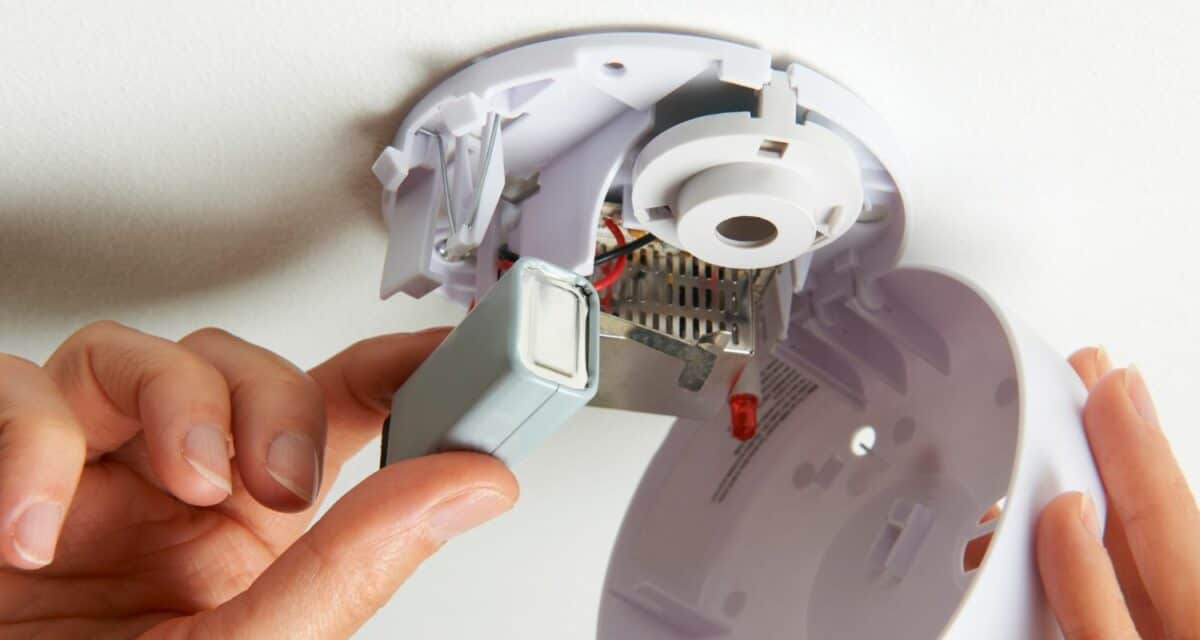You may not realize how important sound is to safety. Alarm systems typically rely on sound amplification to alert you to potential danger. Sirens, warning calls, smoke detectors, home security systems and much more work by projecting a loud noise to call your attention to hazards or caution. So what happens if you have hearing loss? Hearing loss is one of the most common medical conditions that people experience today. Nearly 1 in 6 (48 million) people have some degree of impaired hearing. Hearing alarm systems can present unique challenges for people with impaired hearing. But there are alternatives and ways you can increase safety with hearing loss, a few tips include the following:
- Update Smoke Alarms. Smoke alarms typically deliver high frequency sounds to call attention to smoke or fire. This is not effective for people with hearing loss, especially at night while someone is sleeping which is when hearing aids are not worn. Studies have shown that smoke and heat detectors with low frequency tones can work better for people with hearing loss. There are also smoke alarms that utilize other senses to call attention. This includes smoke detectors that use visual cues like flashing lights to communicate alarms. It is important to explore these options and see what works best for you. Additionally, there are additional tips you can practice to ensure safety:
- Place smoke detector on every level of your house
- Test smoke alarms regularly by pushing the test button
- Replace batteries twice a year
- Keep smoke alarms clean by dusting and vacuuming
- Replace smoke alarms every 10 years or when they stop responding
- Access to 911. Being able to access emergency help and support is important. There are a few measures you can implement to be able to better access 911 services during an emergency. This includes:
- GPS: ensure that your phone has a GPS system that you know how to operate. This allows an operator to track your location if you call from this phone. This allows them to send a responder to you quickly without the back and forth of communicating your address.
- Landline: installing a landline and calling an emergency operator from this phone also allows them to send a responder to your location, even if you are unable to speak.
- Amplified phone: this type of assistive listening device can also be convenient. It allows you to easily adjust volume levels and offers caption services with transcribe audio into text in real time.
- Protect Your Home. Home alarm systems present the same issues as smoke detectors. These systems also rely on high frequency sounds to communicate alarms adn to grab your attention. There are alternative home alarm systems that you can explore including alarms that also project flashing lights and/or shakes the bed. It is also useful to have an alarm system with a panic button that you can keep close to you.
- Sign up for Alerts. Emergency weather conditions or events are usually communicated through broadcasting platforms like the TV, radio, as well as cell phone alerts. This can be challenging for people with hearing loss to access so it is important to explore other options. This includes signing up for emergency alerts in advance which includes any systems that your area provides that you can sign up for ahead of time. Also, establish vibrate settings on your phone so that you can receive alerts that also vibrate.
- Emergency Kit. Preparing an emergency kit is another useful tip that promotes safety. Being able to quickly access materials and resources during an emergency increases your safety. Emergency kits typically include: first aid supplies, food, medications etc. But there are additional supplies that are useful for people with hearing loss. This includes:
- Hearing aid essentials: extra batteries, waterproof container to store device, charging port for rechargeable hearing aids, and cleaning supplies.
- Visual aids: flashlights, batteries, glasses, contacts etc.
- Maximize Use of Hearing Technology. It is important that your hearing aids are in great shape so be sure to properly maintain your device. This includes cleaning them daily by thoroughly wiping your hearing aid down, storing them in a room temperature space, using a dehumidifier to effectively remove moisture etc. Also, consult with your hearing healthcare provider about the range of hearing aid features that can optimally support your hearing.
Implementing these strategies can help you stay safe in emergency situations as well as everyday life. Contact us today to learn more!

